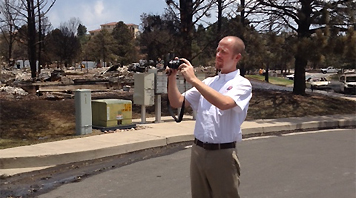|
RMIIA News Releases7951 E. Maplewood Avenue, Suite 110 Contact: Carole Walker, Executive Director SB 125 Unfairly Forces All Colorado Drivers to Subsidize TNCs' Insurance Costs April 1, 2014 – Transportation Network Companies (TNCs) are pushing legislation, SB 125, that shifts the responsibility for their insurance costs from ride-sharing firms onto the personal auto insurance policies paid for by all Colorado drivers. This bill will be up for hearing in the Colorado House Transportation and Energy Committee on Wednesday, April 2, 2014. Two insurance trade associations, the Property Casualty Insurers Association of America (PCI) and the Rocky Mountain Insurance Information Association (RMIIA) say the insurance problems in SB 125 have not been fixed, and this bill will force the personal auto insurance policies of all Colorado drivers to cover the commercial risk of a few drivers that choose to drive for TNCs in the Denver Metro area. "TNCs should cover all the costs of their drivers' commercial activities," said Kelly Campbell, PCI vice president for state relations. "Legislators need to know that the insurance concerns in SB 125 have not been fixed or addressed. This bill continues to force personal auto policies to cover commercial risks. The personal auto insurance policy is not designed or priced to cover riskier commercial driving activity. There is no good reason for all other Colorado drivers to pay higher insurance costs so a few drivers can use their personal car for a commercial purpose. Insurance is a normal cost of doing business—TNCs should not expect Colorado drivers to pay their insurance expenses." Ride-sharing is a new transportation trend in major cities around the country where a company uses a smartphone app to connect drivers using their own personal cars for hire with people needing a ride for a fee as part of an organized program. SB 125 establishes limited regulation of TNCs in Colorado. "The insurance issues have not been resolved in SB 125, so we continue to be concerned that the safety of Colorado drivers, passengers and everyone sharing the road is not protected," said Carole Walker, RMIIA executive director. "TNC drivers are driving on congested streets during peak traffic conditions distracted by multiple apps on their phone. They are driving under riskier driving conditions and therefore present higher risk. The questions being raised about how insurance works and if there is adequate coverage should not be left unanswered until after accidents occur." Legislation on the regulation of TNCs have been introduced in Arizona, California, Colorado, Florida, Georgia, Illinois and Oklahoma. Local ordinances governing ride-sharing programs have been introduced in Chicago, Dallas, San Antonio and Seattle. "TNCs are expanding in cities across the country and becoming viable transportation options for many. However, as this new model evolves, it is important that we do this the right way," said Robert Passmore, PCI senior director of personal lines policy. "Now is the time to establish the appropriate disclosures to drivers and passengers and the appropriate triggers of commercial insurance. Drivers and passengers need to know where they stand. The personal auto policy is not intended to cover commercial activity. As laws are established in each state, we need to make sure the differences between commercial and personal risks are appropriately defined." SB 125 will be heard in the House Transportation and Energy Committee on April 2, 2014, at 1:30 p.m. in the Old Supreme Court Chambers. ### Rocky Mountain Insurance Information Association is a non-profit consumer information organization representing Property and Casualty Insurers in Colorado, New Mexico, Utah and Wyoming. PCI is composed of more than 1,000 member companies, representing the broadest cross-section of insurers of any national trade association. PCI members write over $195 billion in annual premium, 39 percent of the nation's property casualty insurance. Member companies write 46 percent of the U.S. automobile insurance market, 32 percent of the homeowners market, 37 percent of the commercial property and liability market, and 41 percent of the private workers compensation market. |
|
303-790-0216 • 800-355-9524 • Contact Us • Legal Notice, Disclaimer & Terms of Use
Home • About RMIIA • News Room • P&C Insurance Industry • Auto • Homeowners • Business • Catastrophes • Agent Resources • Events & Education • Brochures

